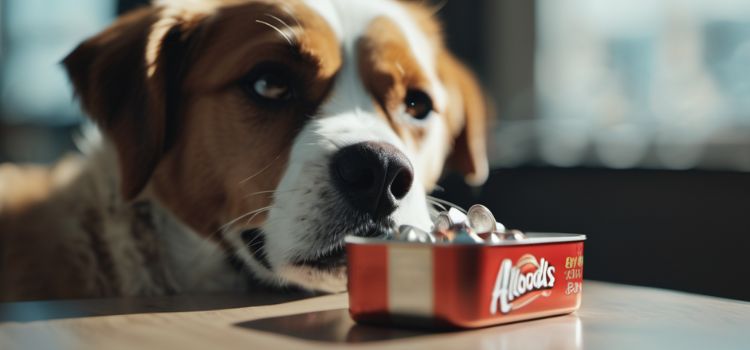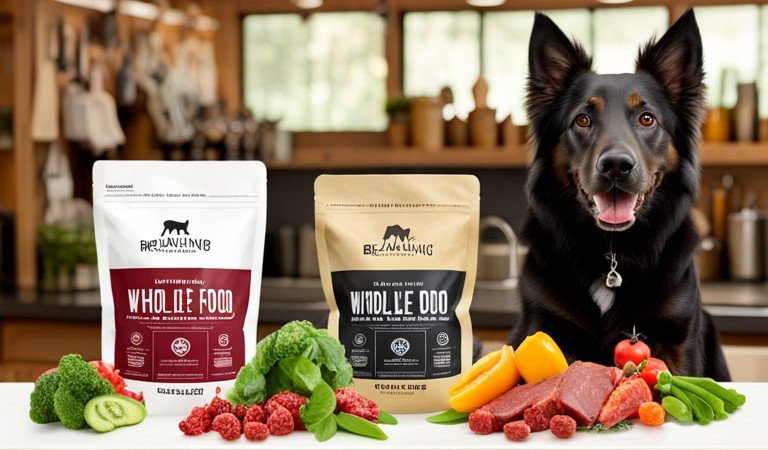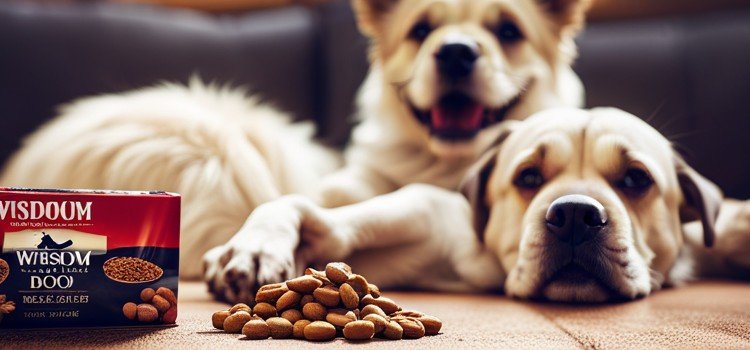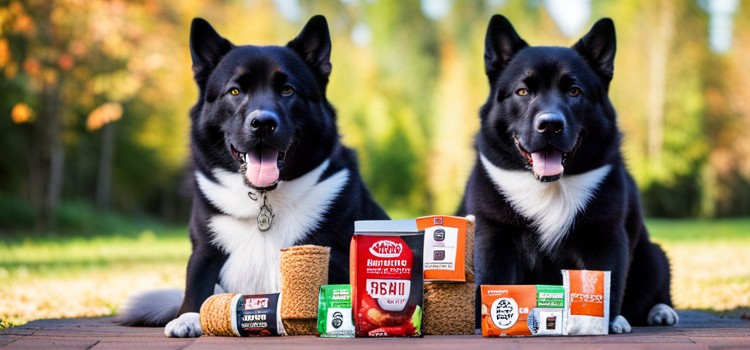As an Amazon Associate committed to the mission of improving the lives of our readers, Live-Clear.com receives a small commission from eligible purchases made through our affiliate links. This revenue enables us to keep producing insightful articles and other material.
Dogs should not eat Altoids as they can be harmful to their health. Dogs should not eat Altoids as they can be harmful to their health.
Altoids contain xylitol, a sweetener that is toxic to dogs and can cause a rapid release of insulin, leading to low blood sugar levels, liver failure, and even death. It’s important to keep all human foods, including mints, out of your dog’s reach to prevent any potential accidents or health issues.

While dogs may be interested in the minty smell and flavor of Altoids, it’s best to stick to dog-friendly treats and avoid any risks to their well-being. Always consult with a veterinarian if you suspect your dog has ingested any harmful substances.
The Potential Risks Of Dogs Eating Altoids
While dogs are often known to be curious creatures and have a tendency to eat things they shouldn’t, it’s important for pet owners to be aware of the potential risks associated with their furry friend consuming altoids. Altoids, a popular breath mint, may seem harmless, but they can pose serious health hazards to your canine companion. In this article, we will explore the potential risks, including the xylitol content in altoids and the toxicity and symptoms that can occur if your dog ingests them.
Xylitol Content In Altoids
Xylitol, a sugar substitute commonly found in sweets and chewing gum, is frequently used in altoids to give them their sweet taste without adding calories. However, xylitol is extremely toxic to dogs, even in small amounts. When a dog ingests xylitol, it stimulates a rapid release of insulin, causing a sudden drop in blood sugar levels. This can lead to hypoglycemia, a potentially life-threatening condition, especially if left untreated.
Toxicity And Symptoms In Dogs Eat Altoids
| Signs of Altoid Toxicity in Dogs |
|---|
| • Vomiting and diarrhea. • Weakness and lethargy. • Loss of coordination. • Seizures. • Tremors. |
Should your dog accidentally consume altoids, it is crucial to look out for these symptoms of xylitol toxicity. Early recognition and prompt veterinary intervention can make a significant difference in your dog’s outcome. If you suspect your dog has ingested altoids, it is important to contact your veterinarian immediately for guidance and possible treatment options.
Remember, prevention is always better than cure, so it’s best to keep altoids and other products containing xylitol out of your dog’s reach. Pet-proofing your home and ensuring that your furry friend cannot access these potentially harmful substances is essential to their safety and well-being.
While a fresh breath is important, it’s crucial to prioritize your dog’s health and make informed choices regarding their diet. Stick to dog-friendly treats and toys that have been specifically formulated for their nutritional needs, as it will prevent unnecessary risks and keep your furry friend happy and healthy.

Alternative Safe Treats For Dogs Eat Altoids
Dogs can be quite curious and may try to snack on things that are not safe for them. For example, many households have Altoids, which are popular mints. But can dogs eat Altoids? As much as we may enjoy their refreshing taste, Altoids are not safe for dogs to consume. They contain ingredients like xylitol, which is toxic to dogs and can lead to various health problems.
Dog-friendly Minty Treats For Dogs Eat Altoids
If your furry friend has a penchant for minty flavors, there are several dog-friendly alternatives available. These treats will not only satisfy your pup’s mint cravings but also ensure their safety and well-being.
- Cooling Dog Treats: These treats are specially formulated to give your dogs a refreshing and minty taste. Safe ingredients in these products provide a cooling sensation and freshen your dog’s breath.
- Natural Mint Bones: Look for dog chews or bones that are infused with natural mint flavors. These minty dental treats can help freshen your dog’s breath while also promoting healthy teeth and gums.
- Mint-Flavored Dental Sticks: Dental sticks are a great option for dogs who enjoy chewing. Opt for mint-flavored dental sticks that not only satisfy your dog’s desire to chew but also freshen their breath.
Healthy Chew Options For Dogs Eat Altoids
Dogs have a natural instinct to chew, and it’s essential to provide them with safe and healthy chew options. Here are some alternatives to Altoids and other potentially harmful chew items:
- Rawhide Chews: Rawhide chews are a popular choice for dogs as they satisfy their need to chew. Look for natural and fully digestible rawhide chews to ensure your dog’s safety.
- Rubber Chew Toys: Rubber chew toys are not only durable but also safe for dogs to chew on. They come in various shapes and sizes, providing hours of entertainment and satisfying your pup’s chewing instincts.
- Nylon Bones: Nylon bones are excellent alternatives to traditional bones. They are long-lasting, non-toxic, and help promote healthy teeth and gums.
- Vegetable Chews: Some vegetables, such as carrots or sweet potatoes, can be safe and enjoyable chew options for your furry friend. Make sure to supervise your dog while they enjoy these natural treats.

Conclusion
While Altoids may be a refreshing treat for humans, they are not suitable for dogs. Dogs have different dietary needs and Altoids can pose potential risks to their health. It’s important to prioritize your dog’s well-being by sticking to a balanced and appropriate diet specifically tailored for their species. Feeding dogs Altoids can lead to digestive issues, such as upset stomach or diarrhea. Additionally, some ingredients in Altoids, like xylitol, can be toxic to dogs and cause severe health problems. Therefore, it is crucial to always consult with a veterinarian before introducing any new food or treat into your dog’s diet.
Frequently Asked Questions Of Can Dogs Eat Altoids
Do not recommend Altoids for dogs. The strong mint flavor and artificial sweeteners can be harmful to their digestive system.
Altoids contain Xylitol, an artificial sweetener that is toxic to dogs and can lead to low blood sugar levels, liver failure, and seizures.
The risks of dogs consuming Altoids include Xylitol poisoning, upset stomach, diarrhea, vomiting, and potential damage to their liver.
Yes, there are dog-specific breath fresheners and dental chews available that are safe for dogs to consume without any potential risks.
If your dog consumes Altoids, it is best to contact your veterinarian immediately for guidance. They will be able to provide the necessary advice based on your dog’s specific situation.
If you’re ever unsure about what foods are safe for your furry friend, it’s best to consult with your veterinarian.
Amazon and the Amazon logo are trademarks of Amazon.com, Inc, or its affiliates.



